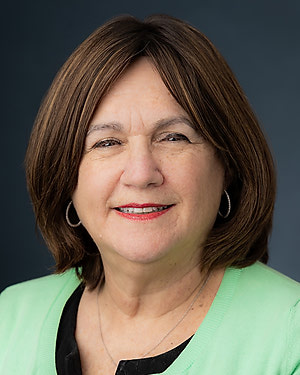Research Lab Results
-
The Arking Lab
The Arking Lab studies the genomics of complex human disease, with the primary goal of identifying and characterizing genetics variants that modify risk for human disease. The group has pioneered the use of genome-wide association studies (GWAS), which allow for an unbiased screen of virtually all common genetic variants in the genome. The lab is currently developing improved GWAS methodology, as well as exploring the integration of additional genome level data (RNA expression, DNA methylation, protein expression) to improve the power to identify specific genetic influences of disease. The Arking Lab is actively involved in researching: • autism, a childhood neuropsychiatric disorder • cardiovascular genomics, with a focus on electrophysiology and sudden cardiac death (SCD) • electrophysiology is the study of the flow of ions in biological tissues Dan E. Arking, PhD, is an associate professor at the McKusick-Nathans Institute of Genetic Medicine and Department of Medicine, Division of Cardiology, Johns Hopkins University.
-
Retinal Cell and Molecular Lab
The Retinal Cell and Molecular Laboratory has three major areas of interest, each of which deals with some aspect of growth factor signaling and function in the retina and retinal pigmented epithelium (RPE): 1. Investigations aimed at gaining a better understanding of the pathogenesis of retinal and choroidal neovascularization and developing new ways to treat them. 2. Investigations aimed at understanding the molecular signals involved in retinal and RPE wound repair and scarring. The prototypical disease in this category is proliferative vitreoretinopathy and our laboratory is seeking to identify new treatments for it. 3. Investigations aimed at understanding why retinal degenerations occur and how they might be treated, with particular emphasis on neurotrophic factors. -
Richard Rivers Lab
The Richard Rivers Lab researches vascular communication with a focus on microcirculation physiology. Our team seeks to determine how metabolic demands are passed between tissue and the vascular network as well as along the vascular network itself. Our goal is to better understand processes of diseases such as cancer and diabetes, which could lead to the development of more targeted drugs and treatment. We are also working to determine the role for inwardly rectifying potassium channels (Kir) 2.1 and 6.1 in signaling along the vessel wall as well as the role of gap junctions. -
Rachel Damico Lab
Work in the Rachel Damico Lab explores topics within the fields of vascular biology and pulmonary medicine, with a focus on acute lung injury and apoptosis in lung diseases. Our studies have included examining idiopathic and scleroderma-associated pulmonary arterial hypertension, vascular receptor autoantibodies, and the link between inflammation and the Warburg phenomenon in patients with pulmonary arterial hypertension. We have also researched the inhibitory factor of macrophage migration and its governing of endothelial cell sensitivity to LPS-induced apoptosis. -
Raymond Koehler Lab
Research in the Raymond Koehler Lab explores cerebrovascular physiology and cerebral ischemic injury caused by stroke and cardiac arrest, using protein analysis, immunohistochemistry and histology. We also study ischemic preconditioning, neonatal hypoxic-ischemic encephalopathy and the mechanisms of abnormal cerebrovascular reactivity after ischemia. We 're examining ways to improve tissue oxygenation and seek to better understand the mechanisms that connect an increase in cerebral blood flow to neuronal activity. -
Ratchford Lab
Prospective registry looking at cardiovascular risk assessment and risk reduction among firefighters.
-
Sherita Golden Lab
Research in the Sherita Golden Lab focuses on identifying endocrine risk factors associated with the development of diabetes and cardiovascular disease. We conduct our research by incorporating measures of hormonal function into the design of clinical trials of cardiovascular risk modification, observational studies of incident cardiovascular disease and diabetes, and studies evaluating diabetic complications.
-
Systems Biology Laboratory
The Systems Biology Lab applies methods of multiscale modeling to problems of cancer and cardiovascular disease, and examines the systems biology of angiogenesis, breast cancer and peripheral artery disease (PAD). Using coordinated computational and experimental approaches, the lab studies the mechanisms of breast cancer tumor growth and metastasis to find ways to inhibit those processes. We use bioinformatics to discover novel agents that affect angiogenesis and perform in vitro and in vivo experiments to test these predictions. In addition we study protein networks that determine processes of angiogenesis, arteriogenesis and inflammation in PAD. The lab also investigates drug repurposing for potential applications as stimulators of therapeutic angiogenesis, examines signal transduction pathways and builds 3D models of angiogenesis. The lab has discovered over a hundred novel anti-angiogenic peptides, and has undertaken in vitro and in vivo studies testing their activity under different conditions. We have investigated structure-activity relationship (SAR) doing point mutations and amino acid substitutions and constructed biomimetic peptides derived from their endogenous progenitors. They have demonstrated the efficacy of selected peptides in mouse models of breast, lung and brain cancers, and in age-related macular degeneration.
-
Chulan Kwon Laboratory
The C. Kwon Lab studies the cellular and molecular mechanisms governing heart generation and regeneration. The limited regenerative capacity of the heart is a major factor in morbidity and mortality rates: Heart malformation is the most frequent form of human birth defects, and cardiovascular disease is the leading cause of death worldwide. Cardiovascular progenitor cells hold tremendous therapeutic potential due to their unique ability to expand and differentiate into various heart cell types. Our laboratory seeks to understand the fundamental biology and regenerative potential of multi-potent cardiac progenitor cells – building blocks used to form the heart during fetal development — by deciphering the molecular and cellular mechanisms that control their induction, maintenance, and differentiation. We are also interested in elucidating the maturation event of heart muscle cells, an essential process to generate adult cardiomyocytes, which occurs after terminal differentiation of the progenitor cells. We believe this knowledge will contribute to our understanding of congenital and adult heart disease and be instrumental for stem cell-based heart regeneration. We have developed several novel approaches to deconstruct the mechanisms, including the use of animal models and pluripotent stem cell systems. We expect this knowledge will help us better understand heart disease and will be instrumental for stem-cell-based disease modeling and interventions for of heart repair. Dr. Chulan Kwon is an assistant professor of medicine at the Johns Hopkins University Heart and Vascular Institute. -
Adrian Dobs Lab
Researchers in the Adrian Dobs Lab study topics that include gonadal dysfunction, hyperlipidemia, diabetes mellitus, and the relationship between sex hormones and heart disease. We currently are investigating male gonadal function—with particular interest in new forms of male hormone replacement therapy—and hormonal changes related to aging.


